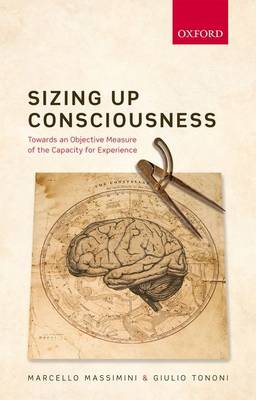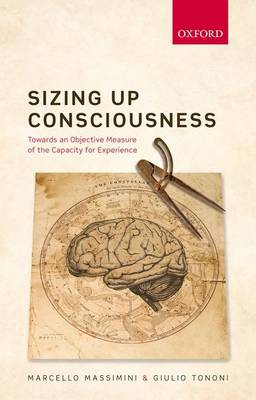
- Afhalen na 1 uur in een winkel met voorraad
- Gratis thuislevering in België vanaf € 30
- Ruim aanbod met 7 miljoen producten
- Afhalen na 1 uur in een winkel met voorraad
- Gratis thuislevering in België vanaf € 30
- Ruim aanbod met 7 miljoen producten
Zoeken
Sizing Up Consciousness
Towards an Objective Measure of the Capacity for Experience
Marcello Massimini, Giulio Tononi
Hardcover | Engels
€ 77,45
+ 154 punten
Omschrijving
Everyone knows what consciousness is: it is what vanishes when we fall into dreamless sleep and reappears when we wake up or when we dream. However, we become less and less confident when we are called to answer fundamental questions about the relationships between consciousness and the physical world. Why is the cerebral cortex associated with consciousness, but not the liver, the heart, the cerebellum or other neural structures? Why does consciousness fade during deep sleep, while cortical neurons remain active? Can unresponsive patients with an island of active cortex surrounded by widespread damage be conscious? Is an artificial system that outperforms people at driving, recognizing faces and objects, and answering difficult questions conscious? Using the Integrated Information Theory (IIT) as a guiding principle, Sizing up Consciousness explores these questions, taking the reader along a fascinating journey from the cerebral cortex to the cerebellum, from wakefulness to sleep, anesthesia, and coma, supercomputers, octopuses, dolphins, and much more besides. By translating theoretical principles into practical measurements, the book outlines a preliminary attempt to identify a general rule to size up the capacity for consciousness within the human skull and beyond. Sizing up Consciousness is a short, accessible book, spanning neuronal activity to existential considerations and is essential reading for anyone interested in awareness and cognition.
Specificaties
Betrokkenen
- Auteur(s):
- Vertaler(s):
- Uitgeverij:
Inhoud
- Aantal bladzijden:
- 212
- Taal:
- Engels
Eigenschappen
- Productcode (EAN):
- 9780198728443
- Verschijningsdatum:
- 21/08/2018
- Uitvoering:
- Hardcover
- Formaat:
- Genaaid
- Afmetingen:
- 137 mm x 218 mm
- Gewicht:
- 417 g

Alleen bij Standaard Boekhandel
+ 154 punten op je klantenkaart van Standaard Boekhandel
Beoordelingen
We publiceren alleen reviews die voldoen aan de voorwaarden voor reviews. Bekijk onze voorwaarden voor reviews.











